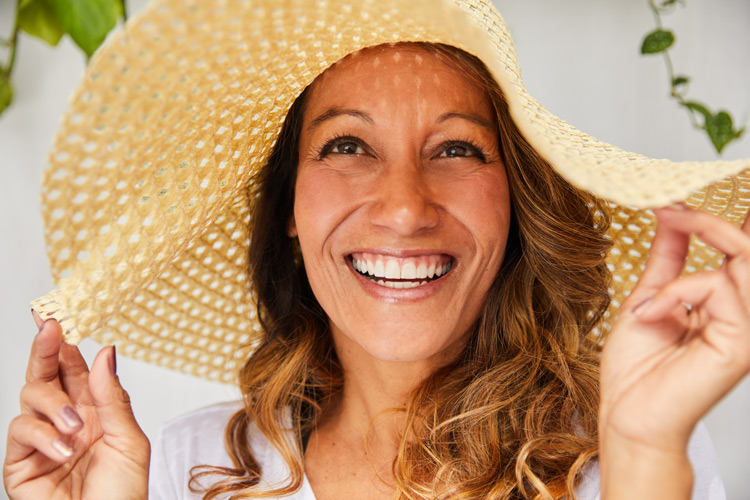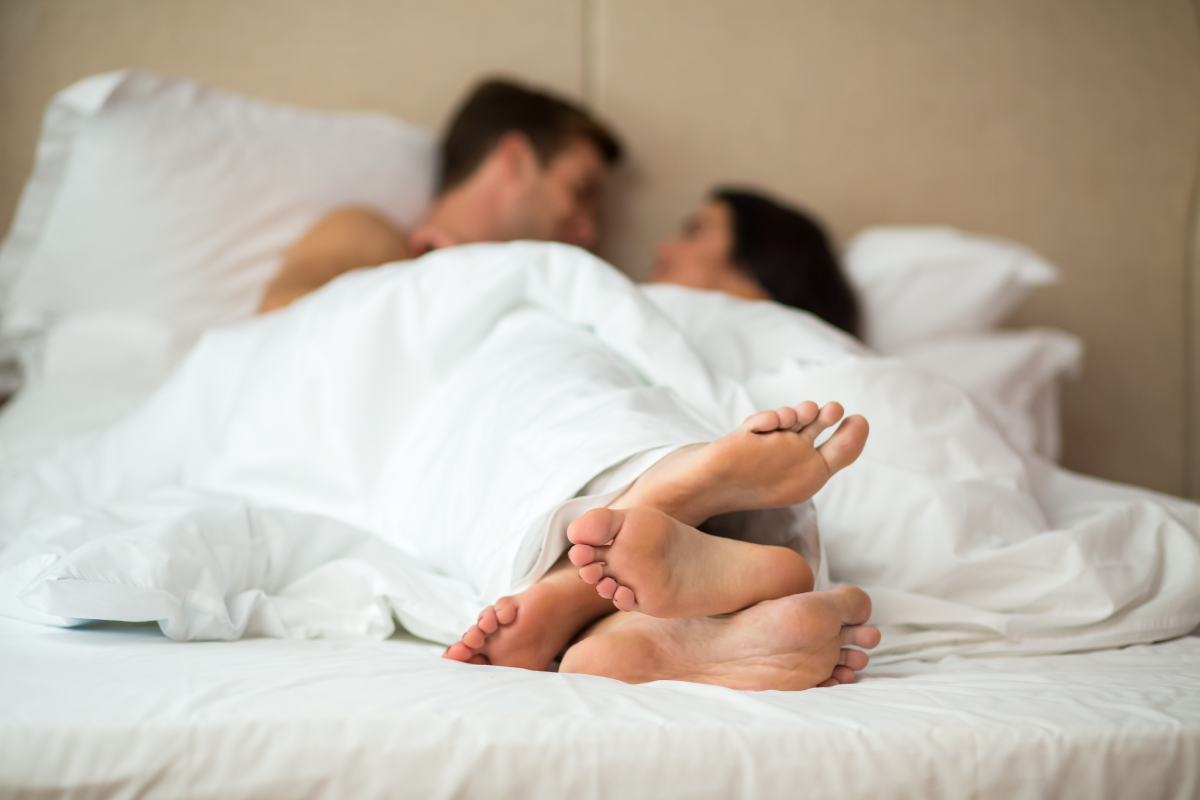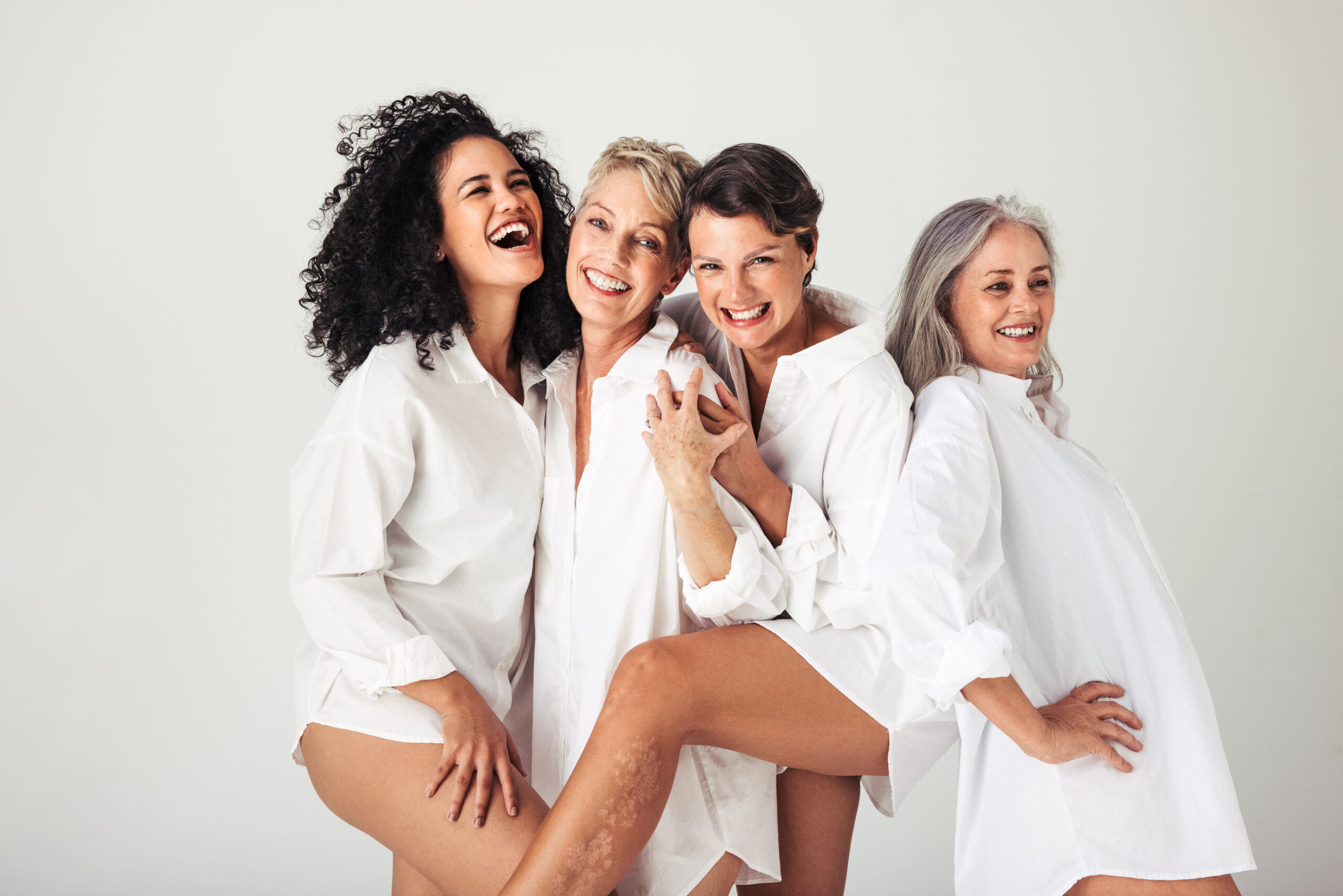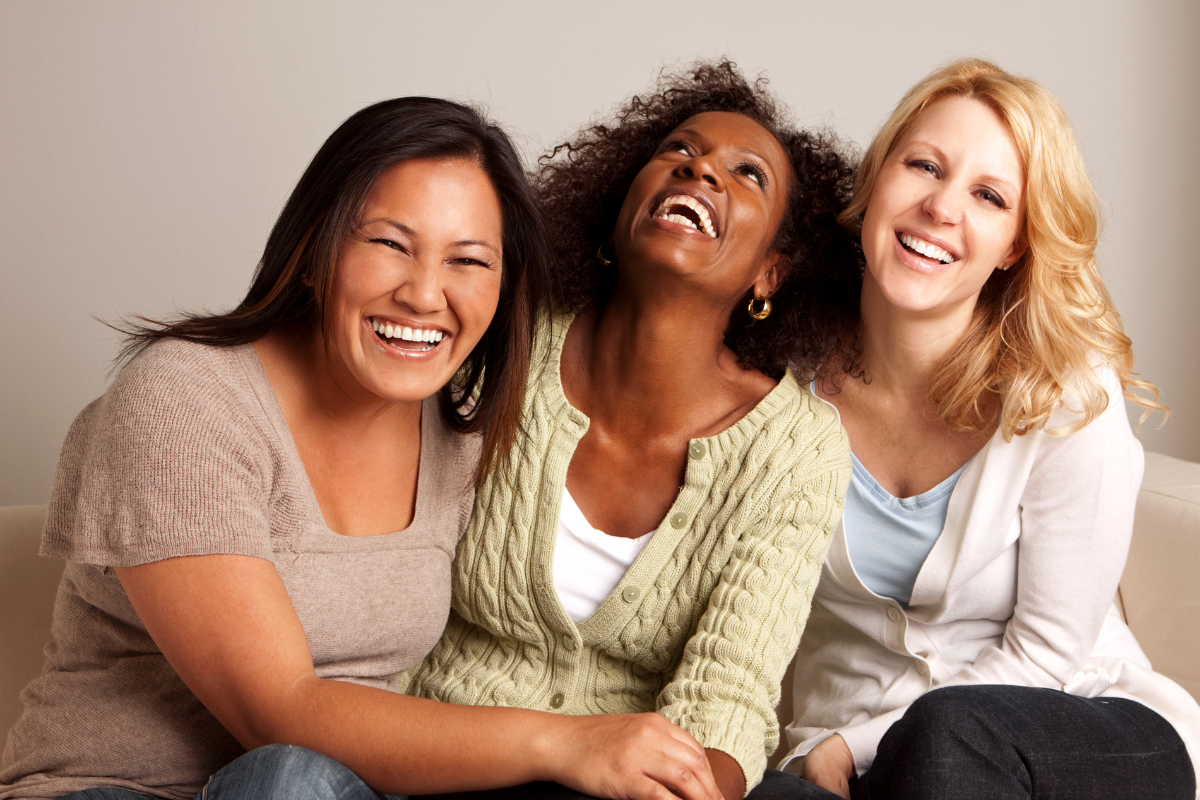
Ageing is a natural part of life, and with it comes a change in our appearance. As we age, we may begin to spot grey hairs, wrinkles in our complexion, sagging skin and age spots (pigmentation). These are perfectly normal changes that happen when the body’s ability to produce collagen, melanin and other compounds decreases. However, hormones also play a large part in the production of these compounds. In this blog post we ask: can bioidentical HRT make you look younger?
We know that the levels of certain hormones decrease with age, especially during the menopause and andropause, so is it possible that replacing and rebalancing these hormones could slow down or even reverse visible signs of ageing?
How Do Hormones Affect Our Appearance As We Age?
Alongside environmental factors such as sun exposure and diet, as well as genetics, hormones have a crucial role in the ageing process. In particular, there are six hormones that contribute to this:
- Estrogen
- Progesterone
- Testosterone
- Dehydroepiandrosterone (DHEA)
- Somatotropin (also known as the human growth hormone)
- Cortisol
An imbalance of these hormones can exacerbate the signs of ageing. Men and women who are going through the menopause or andropause may experience a hormonal imbalance, which can result in accelerated wrinkling and sagging of the skin, plus grey or thinning hair. In addition, less obvious signs of ageing, such as decreased muscle mass and bone density, brain fog and reduced energy levels, become far more apparent during this time.
Skin & Hormones
Estrogen modulates keratinocytes, which are responsible for the growth and structure of the skin; dermal fibroblasts, which are essential to help the skin recover from injury; and melanocytes, the melanin-producing cells which are responsible for producing pigment in the skin. Both estrogen and testosterone influence skin thickness by stimulating collagen production (collagen is a protein which provides strength and elasticity; it is often used in aesthetic treatments such as fillers to provide a plumper look to the skin and lips).
In both men and women, testosterone stimulates sebum to keep the skin from losing moisture.
Hair & Hormones
Dihydrotestosterone (DHT) is made from testosterone (and, more commonly from DHEA in women) by a naturally occurring enzyme in the body. This hormone binds to hair follicle receptors, which weakens them and causes the hair to thin, or the follicles to stop producing hair. In women going through perimenopause or menopause, the decline in female hormone production can trigger an increased sensitivity to male hormones such as DHT, causing hair thinning and loss.
Men going through andropause, however, experience declining levels of testosterone and therefore DHT, but may also suffer from hair loss. This is usually due to androgenetic alopecia, a hereditary condition that goes hand in hand with a sensitivity to DHT, causing hair to thin and leading to the eventual loss of hair.
Increased stress levels in both men and women can produce excess cortisol, which is linked to hair loss at any age.
The Hidden Signs Of Ageing
We mentioned that low estrogen levels in women can cause a decrease in collagen, but this does not just affect the complexion. The muscles all over our body are linked by connective tissue which is rich in collagen, providing support and protection. Low estrogen impacts collagen production across the muscular system, which can decrease function and performance, make you feel stiff and achy, increase the chance of injury and contribute to an untoned appearance. Meanwhile, when testosterone is present within the body, androgen receptors signal to muscle cells to increase protein synthesis, thereby increasing muscle mass.
Estrogen regulates bone mineral density in both men and women by inhibiting the activity of osteoclasts. These cells break down bone before it is absorbed into the body and new bone is formed, and they are crucial in the repair and remodelling of bones. A decline in estrogen increases osteoclast activity, meaning that bones begin to break down faster than they can regenerate. In addition, free testosterone (testosterone that is not bound to any proteins) in the bloodstream is converted into estradiol (a type of estrogen) which contributes to bone mineral density preservation.
How To Slow Down The Signs Of Ageing
Our team of Anti-Ageing Specialist & Hormone Doctors at the Marion Gluck Clinic says: “A comprehensive and targeted approach is one of the most effective ways to slow down the signs of ageing. Whilst nothing can reverse the process of ageing, hormone balancing can help reduce some of the most signs of ageing and can help delay the process, keeping you looking and feeling younger for longer.
“Our approach at the Marion Gluck Clinic is to combine bioidentical HRT (to help you feel younger on the inside), prescription face cream (to help you look younger on the outside), and lifestyle changes.”
BHRT
Hormone profiling allows us to discover your hormone levels and determine which require rebalancing. We can then create a bespoke treatment plan to target your needs. When undergoing treatment, you are likely to see visible improvements to your skin elasticity, hair thickness and muscle mass. You can also feel confident in the maintenance of your bone density which is known to prevent osteoporosis.
Prescription Hormone Skin Care
We can further target your skin with the use of prescription hormone face creams. Unlike commercially available skincare products, prescription creams are formulated to cater to the individual, addressing concerns such as:
- Wrinkles
- Dryness
- Inflammation
- Thinning skin
- Dermal damage (such as blemishes and scarring)
As well as the bioidentical hormone formulation, we can prescribe other ingredients that are proven to be highly effective in the improvement of skin conditions, such as vitamin E and C, and hyaluronic acid.
To find out more about prescription skincare, read our blog post.
Lifestyle Changes
We encourage you to make healthy lifestyle changes in order to better your quality of life, whether undergoing hormone balancing or not. These lifestyle changes can also help fight signs of ageing, and include:
- Maintaining a good fitness routine: Staying active, whether it’s going for a walk or hitting the gym, can improve muscle mass by stimulating anabolic hormones to aid muscle growth. In addition, the increase in blood flow through exercise ensures that nutrients are carried to the skin, improving its vitality.
- Eating a diet consisting of nutrient-rich foods: Diet is incredibly important when naturally balancing your hormones. A rich and varied diet can ensure that you are consuming nutrients that you cannot produce naturally, such as vitamin D which is vital for maintaining healthy bones.
- Reducing stress: Stressful experiences increase cortisol production within the body. Too much of this hormone causes imbalances, which can lead to problems with the skin and hair. It can also affect your sleeping patterns and mental health, making you less motivated to work out and more inclined to consume comfort foods.
Feel Younger For Longer With Help From The Marion Gluck Clinic
If you are interested to learn more about how BHRT can help you look and feel younger for longer, please don’t hesitate to book an appointment with us today.



